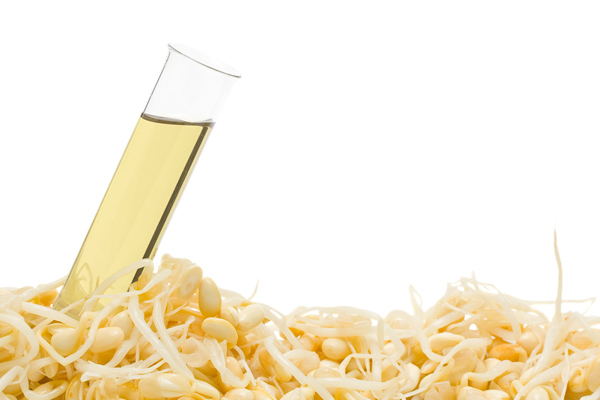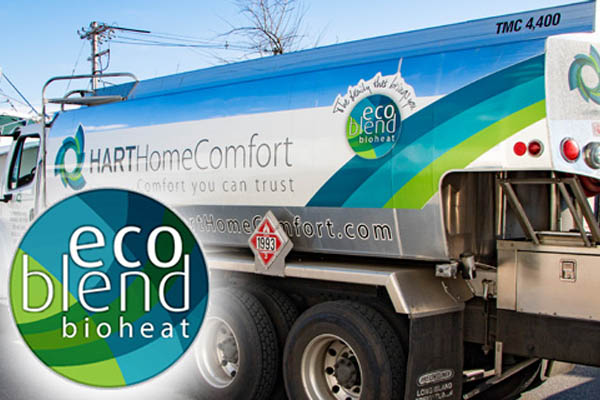Is Biofuel A Renewable Energy Source?

There is some very strong evidence supporting biofuel. Many reputable and highly trusted sources are stating that biofuel is indeed a renewable source of energy. Actually, industry insiders assert that biofuel is currently the most cost-effective way to limit reliance on fossil fuels. Better still, using this fuel is the faster way to reduce the collective carbon footprint of the entire United States while allowing the nation to reach carbon neutrality by the year 2050.
And do you want to know the best part?
Switching from traditional heating oil to biofuel isn’t going to cost the American public a veritable fortune, which isn’t the case with other types of renewable energy such as wind or solar. In fact, a lot of homes are already equipped for accommodating the use of biofuel.
Today, we’re going to cover the following topics in-depth:
- A Quick Overview of Renewable Energy
- Two Biofuel Types: Biodiesel and Ethanol
- The Personal and Global Benefits of Converting to Biofuel
Read on to discover the truth about using biofuel that mass media doesn’t want you to hear.
Getting A Better Grasp Of Renewable Energy & What It Means
Table of Contents
What is energy that’s renewable? As per EIA.gov, the primary renewable energy sources are:
- Solar
- Geothermal
- Water
- Wind
- Biomass such as biofuel, biogas, and wood and municipal waste
In total, the United States was only using about 12% of renewable energy in 2020. But top corporations throughout the United States and the U.S. Government itself are committed to changing this fact. Surprisingly, all of the home heating oil customers at Hart Home Comfort have already automatically switched to biofuel (and at no additional charge). We currently deliver EcoBlend Bioheat® heating oil which is comprised of a renewable, liquid, biodiesel fuel.
The most strict definition of renewable energy is a means for producing energy via resources that naturally renew or that can be replenished over time. It requires the production of energy from resources that cannot be exhausted.
The Role Of Renewable Energy In The United States

Throughout the 1800s, wood was the biggest provider of energy in the country. However, in the late 1800s, fossil fuels took over and have remained the primary source of the nation’s energy since this time.
In recent decades, the United States has been working to lower carbon emissions at an increasingly rapid pace. Thus, the nation is currently more committed to finding and developing new renewable energy sources such as biofuel, solar energy, geothermal energy, and wind energy.
In the year 2020, the United States reached its highest record ever concerning the production and consumption of renewable energy, and this trend is an ongoing one.
Two Biofuel Types: Biodiesel & Ethanol
There are two primary types of biofuel called biodiesel and ethanol. As per the Bioenergy Technologies Office or BETO, the next-generation of ethanol and biodiesel are derived from algae-based products, cellulose materials, and non-food substances.
Substitutes for petroleum such as “drop-in” fuels are being increasingly produced to limit the reliance on oil. These hydrocarbon-based fuels are biofuels that are acceptable for use in vehicles, pipelines, pumps, and engines.
What You Need To Know About Ethanol

CH3CH20H or Ethanol is a powerful renewable energy source derived from various forms of biomass or different types of plant materials. It is primarily an alcohol that can be safely blended with gasoline.
Why use ethanol? Well, there are two reasons for its use. To start, it limits the amount of carbon monoxide in the atmosphere that’s responsible for causing pollution and smog. Next, it raises octane levels to produce a cleaner, stronger, and ultimately better fuel.
Overall, ethanol largely consists of plant starches and sugars, but improvements are being made in this technology daily. Scientists are currently developing technologies and ways that make the use of cellulose and hemicellulose possible. These fibrous materials are non-edible but they comprise the bulk of plant matter, and they are both available in ample supply and definitely renewable.
The most common method for converting biomass materials into ethanol is fermentation. Microorganisms like bacteria and yeast metabolize plant sugars and then produce ethanol naturally.
Different Ethanol Applications
Ethanol is largely used as an automobile fuel. It’s frequently mixed with gas to give it a higher octane rating. What’s the purpose of this? The resulting mixture is a more environmentally friendly fuel that’s, cleaner, safer, and better for your car.
Ethanol is sometimes an ingredient in alcoholic beverages, used as an industrial chemical, and applied as a solvent. This fuel is renewable, pristine and perfect for creating a greener and far cleaner world.
What Biodiesel Is

Biodiesel is a fuel derived from renewable sources of energy and then produced as a liquid. It is made using vegetable oils and animal fats to create a cleaner-burning alternative to petroleum-based diesel fuels.
Better still, biodiesel is both non-toxic and biodegradable. The companies that make biodiesel do so with animal fat, recycled cooking grease, and vegetable oil products.
Much like petroleum-derived fuel, biodiesel can be used in compression ignition engines or diesel fuel engines.
Biodiesel is blended with ultra-low sulfur heating oil (ULSHO) to heat the home. Bioheat® fuel is a proprietary product that we use for every one of our customers. It is a blend of ULSHO and biodiesel.
Blend Ratios For Biodiesel & ULSHO

Biodiesel and ULSHO blends exist in many different concentrations. Among some of the more common blends are those that have been fused with soy-based fuel to reduce carbon emissions and create a clean-burning source of energy. The most popular of these blends are:
- B5: This common blend has at least five percent biodiesel
- B20 – This is the blend that we are currently delivering to our clients. It is a mixture of 80 percent ULSHO and 20% biodiesel.
- B50: B50 is comparable to B20, however, it is a 50/50 blend of ULSHO and soy
- B100: This fuel is the ultimate goal in the home heating oil industry. With B100, the liquid renewable fuel is entirely derived from renewable sources of energy.
Bioheat® Fuel Benefits And Facts
Bioheat® oil B20 is the mixture that we are now providing for homes as fuel. This green fuel is the prototype for the direction in which the entire heating industry aims to move so as to eliminate all carbon emissions.
Currently, the Bioheat® fuel 80/20 blend meets all quality levels prescribed for complying with ASTM standards. Moreover, it offers a very vast range of benefits for improving our carbon footprint and more. Among these benefits are:
- Bioheat® heating oil is made with premium-quality ingredients and meets the absolute strictest standards for quality within the industry. This fuel is better for the environment all-around, and it’s both safe and efficient.
- Bioheat® fuel is better for the economy. Bioheat® oil has created 62k jobs in the United States industry. This number is set to increase over time as more companies and property owners adopt this clean energy.
- It’s perfect for the natural environment. The drive to develop a renewable fuel is to reduce and ultimately eliminate carbon emissions. Bioheat® fuel meets this goal on a smaller scale at the moment and with the goal of producing a plant-based and entirely renewable fuel that won’t have any greenhouse gas emissions.
- It’s more economical. In addition to being more affordable, this fuel can work with your current heating oil equipment. For instance, switching over to solar power can cost up to $20k or even higher after you’ve paid to have your old heating equipment taken out and your solar-powered heating system installed. Moreover, converting to an all-electric heating system in your home won’t provide a comparable BTU output which will matter when the coldest days of winter arrive.
Making the Decision to Heat Your Home With Biofuels: The Personal & Global Benefits
Hopefully, you’re starting to see that biofuel is preferable for the environment and much cleaner overall. Among some of the top reasons for switching to biofuel for your home heating are:
- There’s no need to change your current heating equipment – you can use EcoBlend Bioheat® heating oil to heat your home using the heating system you currently have. Homeowners are able to save money because they don’t have to pay for the removal of old equipment and the installation of new systems.
- Biofuel is a reliable home heating fuel – it is entirely safe, dependable, and can be easily and very quickly stored in the tank on your property. You won’t experience frustrating disruptions in your fuel supply or weather interruptions – which isn’t the case with solar energy and wind power.
- It’s green and renewable – biofuel is far cleaner than any conventional heating fuel. It actually burns in the cleanest fashion imaginable and far surpasses the EPA’s standards for air pollution. Moreover, as an industry, we’re constantly working to improve blend rations and constantly creating renewable liquid fuel products that are greener still.
- There are many worthwhile financial benefits – among these are fewer repairs, improved efficiency, and if you’re eligible in your state, possible tax credits.
- It’s all about efficiency – biofuel offers a very hot flame which means it can quickly heat both your water and your home. New advancements in this technology mean that you’ll need less fuel to produce the same amount of heat that you’d get from oil fuel.
Final Word
Homeowners enjoy having environmentally friendly, clean, and affordable fuel for their home heating systems. EcoBlend Bioheat® heating oil is a renewable liquid fuel that provides an impressive range of benefits. Best of all, it’s dependable, sustainable, and great for the natural environment. It’s the new and incredibly eco-friendly way to keep your home warm.
Get in touch with Hart Home Comfort to learn more about heating your home with efficient, sustainable, and clean EcoBlend Bioheat® home heating oil. You can also schedule a delivery for EcoBlend Bioheat® heating oil today to start heating your home with a green, eco-friendly energy source.
Call Hart Home Comfort Today To Order EcoBlend Bioheat® Heating Oil
 Hart Home Comfort is providing homeowners in Nassau County, Suffolk County, and Queens, New York with a greener and cleaner solution in the form of EcoBlend Biodiesel. This is ultra-low sulfur and low carbon heating oil that is blended with 100% biodiesel.
Hart Home Comfort is providing homeowners in Nassau County, Suffolk County, and Queens, New York with a greener and cleaner solution in the form of EcoBlend Biodiesel. This is ultra-low sulfur and low carbon heating oil that is blended with 100% biodiesel.
As mentioned above, EcoBlend Bioheat® Fuel doesn’t require costly furnace modifications, allowing homeowners to use their existing equipment while making the switch to cleaner fuel.
Call Hart Home Comfort today to learn more about EcoBlend Bioheat® Heating Oil and join us in reducing carbon emissions today!
For any questions about what Hart Home Comfort can do for you, give us a call today. Click here to contact us now or call us at (631) 667-3200 to find out more!